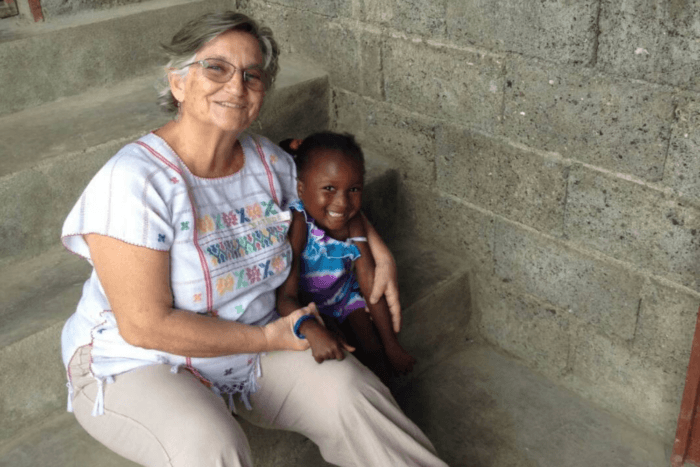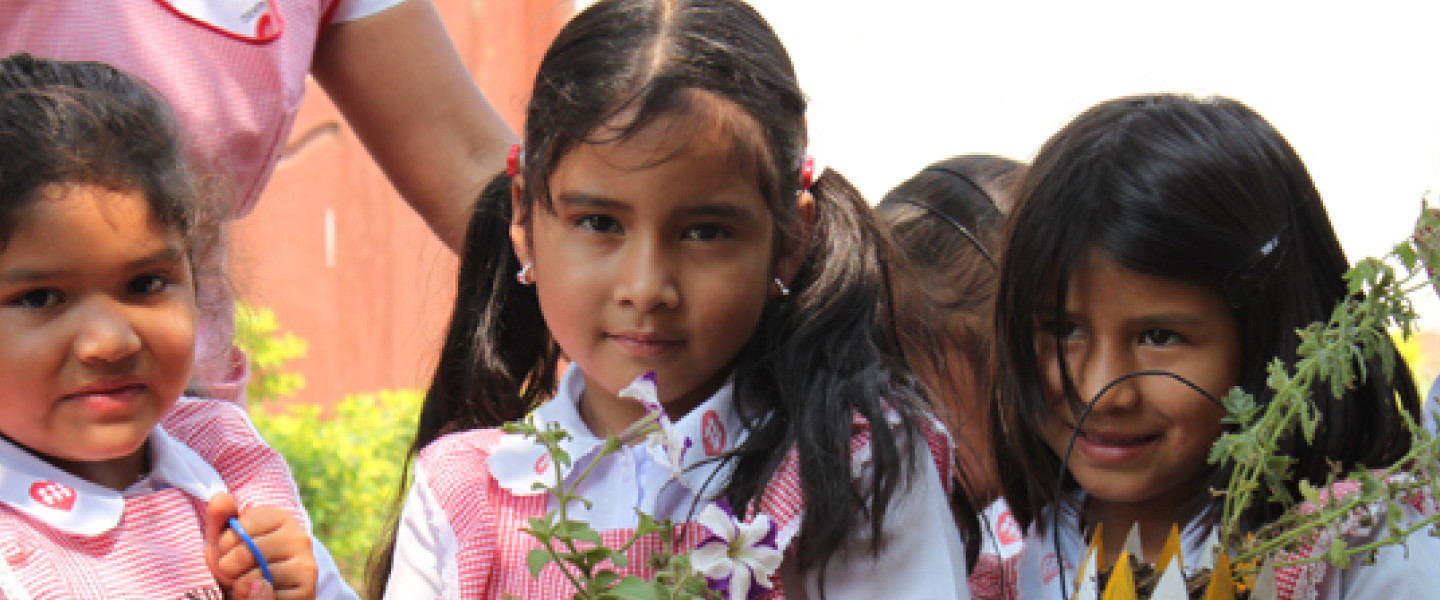
Matilde Moreno, RSCJ, is a Spanish religious sister who is the Coordinator of Pedagogy for Fe y Alegría Haiti. She has taken the time to share her story with us, describing the work of Fe y Alegría Haiti, and her dreams and hopes for the students, teachers and families she accompanies.
Could you describe your work as the Pedagogical Coordinator for Fe y Alegría Haiti?
The best aspect of my job is that I form part of a team. I am not the boss but a partner who fulfills the role of being very attentive, listening to the people with whom I work and the reality with which we work. My role is to look at the reality and invite others to contemplate as well, in order to, together: analyze, review, program, correct, follow up, evaluate. I also have a very important role to sit without looking at the time and welcome others. Sometimes this means being present to team members who, being young, are growing and need support. Other times school directors who come with their load of achievements and problems. My workplace is a round table that invites you to share.
How would you describe the Fe y Alegría movement & its pedagogy to someone who has never heard of this network?
We are a family under construction. As in any family, the situations and degrees of maturity are different. The experience of some helps the work of others. We are a family that has chosen a path and strives to follow it: to serve the poorest, those who have difficult access to a quality education. We do so in response to the invitation of Jesus of Nazareth to stand by those that society leaves aside and we follow the principles of Popular Education which has the ultimate goal to train people capable of transforming society. We are a global family, expanded throughout 22 countries in Latin America, Africa and Europe, with more than one and a half million participants and with a universal vocation.
What would you say to individuals who are interested in learning more about the reality of education in Haiti?
The Haitian people are full of values where resilience stands out with enormous strength. In Haiti, there are approximately 12 million people where 50% of the population is under 14 years old. Only 50% of children have access to education. Of every 100 students who start primary school, only 2% access secondary school. State schools are only 15% of the total, which means that families have to pay for the education of their children. Educational methods, in general, are very outdated: with rigid discipline and behavioral characteristics. Although the language that dominates throughout the entire population is Creole, teaching is almost exclusively in French. This leads to the low level at which the students finish their studies. (Having no official statistics, this information was gathered from UNICEF and the IDB).
What are some of the challenges you face in your day-to-day work? What are some of your hopes? How do you frame these challenges as opportunities?
Faced with the sad reality that I describe above, my daily challenge is to enlighten a real possibility of hope. A small, but feasible possibility. For this reason, I dedicate time and effort to train the rest of the team that works with me in the practices that the Haitian university does not offer today to its students, such as the methodology of the Popular Education, active teaching-learning methods, the path to reach a socio-constructivism that allows us to move towards a pedagogy that is truly personalized, creative, investigative, that forms autonomous, free and supportive individuals, capable of producing social change. I also elaborate many training materials in Creole, following the methodology of Popular Education, which we use for the training of teachers, students and communities where our schools are located. Not having materials of this kind in country, gives me the opportunity to create them following the educational philosophy of Fe y Alegría and share them with other institutions.
What motivates and inspires you to work for quality education in your country?
I dream of a Haiti that is free and made up of people who are happy, owners and builders of their present and their future. I dream of a country where people feel safe, respected and proud of their ability to live off their work, without relying on international contributions and corrupt leaders. This is built from below (the grassroots), from an education that allows people to grow in knowledge and profoundly human values, as our common Father and Mother dreamed for us from the beginning.
What can (and is) Fe y Alegría doing in Haiti to defend the right to quality and inclusive education?
We are putting the greatest effort into teacher training in our schools so that they can give a quality education to their students and to the community where our schools are located. Over the last three years, many initiatives have been carried out in this sense: agreements with various universities to give teacher training courses; teacher congresses to make important decisions such as the democratic management of the centers or addressing violence; preparation of materials and training courses on post-traumatic recovery (after natural disasters), the identity of Fe y Alegría, the management of centers, sexuality formation, gender equality, respect and conservation of the environment. Also some of our young people have participated in a binational congress, with students from Fe y Alegría Dominican Republic. Now, we are in the process of preparing to participate in another one.
We aspire to create schools where children feel safe, accompanied in their personal and social development. Students who are free, autonomous, committed to the improvement of their communities and happy because they know they are valuable and above all, because they know they are loved.
If you want to learn more about Fe y Alegría’s work in Haiti click here.
Support Haiti this #GivingTuesday!

